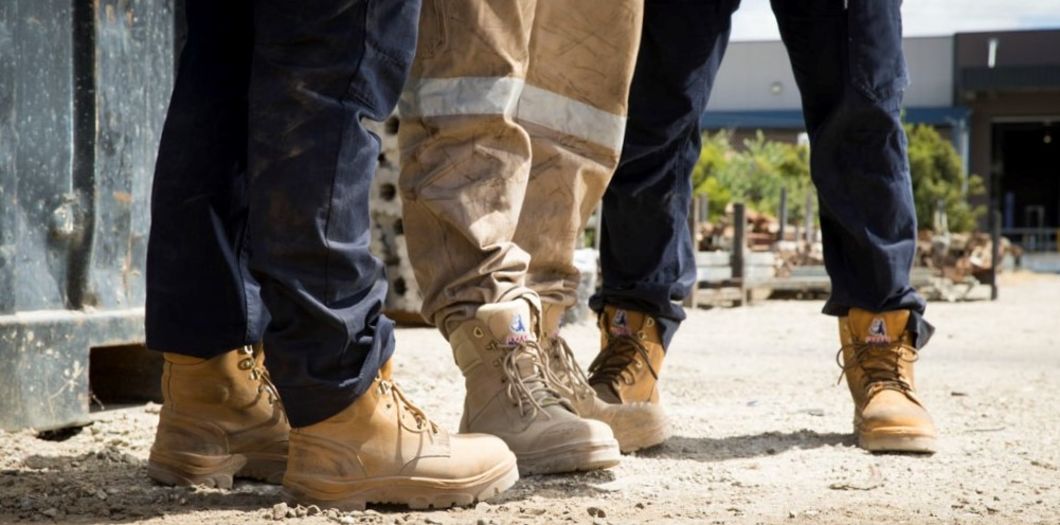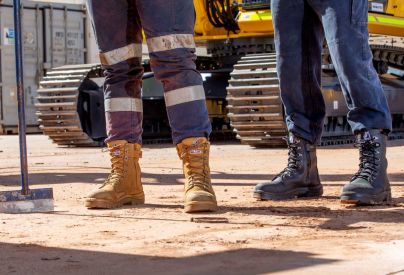The wellbeing of FIFO workers

Looking after your mental health as a fly-in, fly-out worker.
Beyond Blue share tips on being your personal best and supporting those around you. This article explains the difficulties that FIFO workers and their families face and where to seek help.
Fly-in, fly-out (FIFO) work involves employing contractors who ‘fly in’ temporarily to a remote location where they’ll work for a set period of time before they ‘fly out’ and return home. The roster will usually involve a week or two on followed by a week or two off. This type of work is especially common in rural Australia, where many mining companies will employ FIFO workers to manage a remote site.
The upside? These roles typically pay quite well. The downside? The demanding nature of FIFO work can take its toll on the worker’s overall wellbeing.
Long working days and isolation from loved ones can be compounded by a feeling that there is nobody to talk to, especially if a person is finding things tough and needs support. A Government-funded study from Curtin University found that one in three FIFO workers experiences high levels of psychological distress.
In too many cases, the coping mechanism of distressed FIFO workers is drugs and/or alcohol.
Here are some experiences that FIFO workers have discussed in the Beyond Blue forums:
“I have become somewhat of a miserable grump drinking excessively each night and it is having a massive effect on my mind and the way I have been feeling about being away. One of the biggest reasons I started this kind of work again was for the money but it is doing a serious number on me, being away from my wife and family.”
“I work a two weeks on two weeks off roster. I have struggled with the depression of being away for six months of the year and this has badly affected my relationship. I’ve become lazy, unmotivated, progressively more depressed and this has had a negative impact on my relationship with my fiancé and friends.”
FIFO work can also be extremely tough on partners and family members back home.
“I have been a FIFO wife now for 16 years. Sometimes I feel I have a boarder staying with me and not a husband.”
“My wife is a FIFO worker. I’ve seen her for six and a half days in the last five weeks and most of those days I was at work; I’m a teacher. My school week is super busy. But it is so lonely. Then there’s all the house work, cooking, ironing, homework etc to do each day. I don’t sleep well. I can’t stop thinking about her. I am getting emotional and I have had several nights where I cry myself to sleep.”
The issue of FIFO work and mental health risks has received greater exposure in recent times. Earlier this year the West Australian Government released Australia’s first FIFO Mental Health Code. It’s estimated that there are more than 60,000 FIFO workers in WA alone. A mentally healthy workplace fosters a positive work culture, takes care to manage the stress and overall wellbeing of its workers, has a zero-tolerance approach to discrimination and workplace bullying, and supports employees who are experiencing a mental health condition.
While FIFO employers might offer higher pay rates, this cannot come at a compromise of the above attributes.
If you or a loved one are finding it hard to cope with the FIFO lifestyle, open lines of communication are crucial. Keeping silent doesn’t help anyone. You can also access professional support. The first step is to consult a GP – here are some tips for finding a GP that can help with issues around mental health.
Wherever you are in Australia, you can speak with a trained mental health professional via the Beyond Blue Support Service:
- Call 1300 22 4636 (available 24/7)
- Chat online (between 3pm – 12am AEST)
- Email (receive a response within 24 hours)
Source: Beyond Bluewww.beyondblue.org.au/personal-best/pillar/in-focus/looking-after-your-mental-health-as-a-fly-in-fly-out-worker
For further tips on being your personal best, visit www.beyondblue.org.au/personal-best
Steel Blue joined forces with Beyond Blue in 2014 to launch the Blue Boot initiative where $10 from the sale of every pair of Men’s and Ladies Blue Boots is donated to Beyond Blue. Click below for more information on our Blue Boots.











